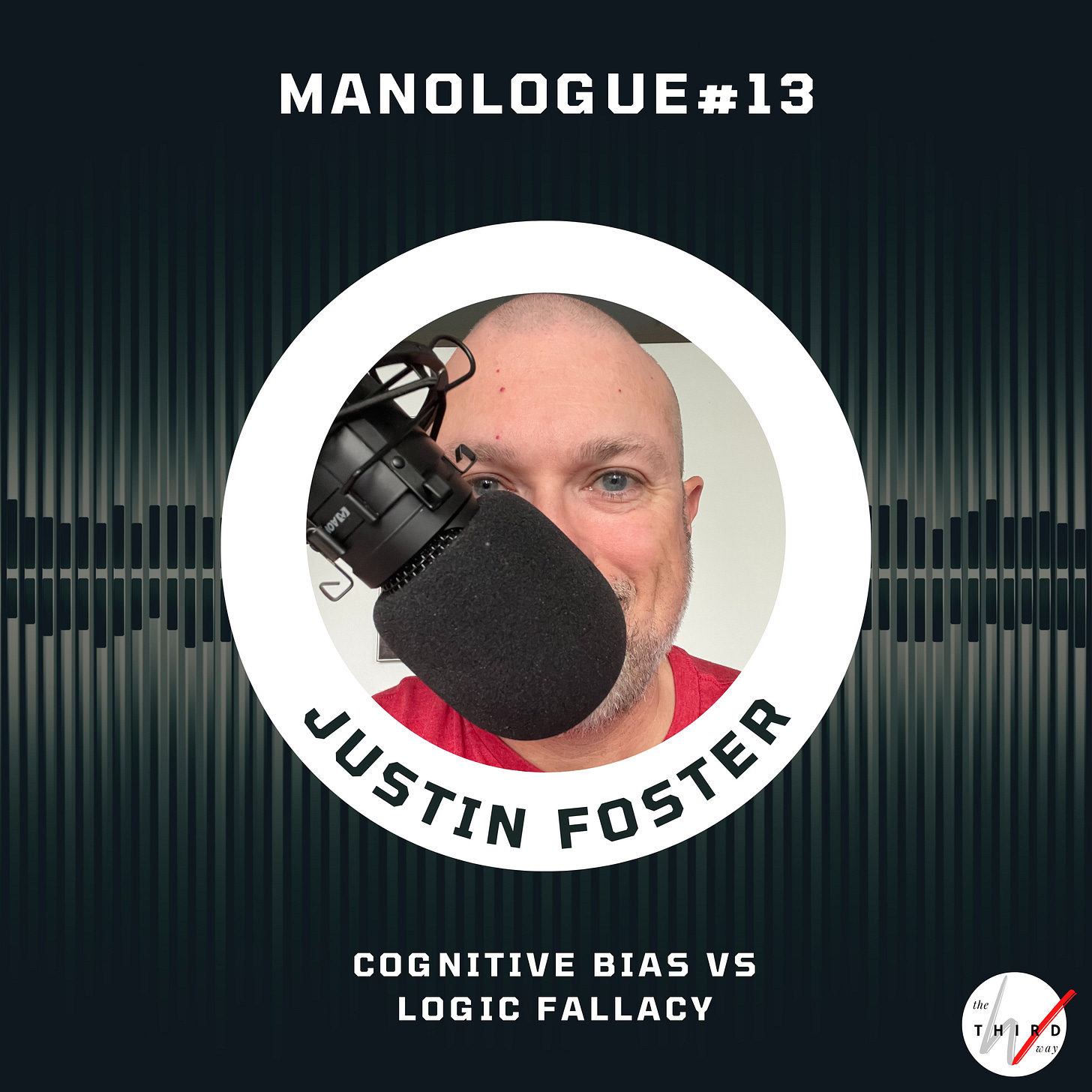In this Manologue episode, I share the difference between cognitive biases and logical fallacies and how logical fallacies are direct threat to American ideals and truth itself.
As mentioned, I am including a partial list of both …
Here are some of the top cognitive biases:
Confirmation Bias: The tendency to search for, interpret, and remember information in a way that confirms one's preconceptions.
Anchoring Bias: The tendency to rely too heavily on the first piece of information encountered (the "anchor") when making decisions.
Availability Heuristic: The tendency to overestimate the importance of information that is readily available or recent.
Hindsight Bias: The tendency to see events as having been predictable after they have already occurred.
Self-Serving Bias: The tendency to attribute positive outcomes to one's own abilities and efforts, and negative outcomes to external factors.
Fundamental Attribution Error: The tendency to attribute others' actions to their character while attributing one's own actions to external circumstances.
Ingroup Bias: The tendency to favor members of one's own group over those in other groups.
Sunk Cost Fallacy: The tendency to continue investing in a decision based on the cumulative prior investment (time, money, resources) rather than future benefits.
Bandwagon Effect: The tendency to adopt beliefs or behaviors because others are doing so.
Overconfidence Bias: The tendency to overestimate one's own abilities, knowledge, or predictions.
A list of the top 10 logical fallacies:
Ad Hominem: Attacking the person making the argument rather than the argument itself.
Straw Man: Misrepresenting or oversimplifying someone's argument to make it easier to attack.
Appeal to Ignorance (Argumentum ad Ignorantiam): Arguing that a proposition is true because it has not been proven false, or vice versa.
False Dilemma (False Dichotomy): Presenting two options as the only possible choices, when in fact there are other alternatives.
Slippery Slope: Arguing that a small first step will inevitably lead to a chain of related (negative) events.
Circular Reasoning (Begging the Question): The conclusion of an argument is assumed in the premise.
Hasty Generalization: Making a broad generalization based on a small or unrepresentative sample.
Red Herring: Introducing an irrelevant point into an argument to distract from the original issue.
Appeal to Authority (Argumentum ad Verecundiam): Believing a claim is true simply because an authority figure endorses it.
Appeal to Popularity (Argumentum ad Populum): Arguing that a proposition is true because many or most people believe it.














Share this post